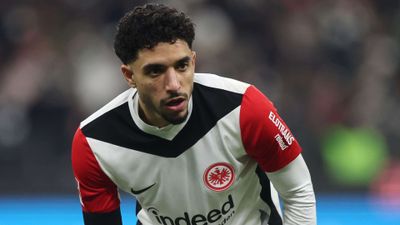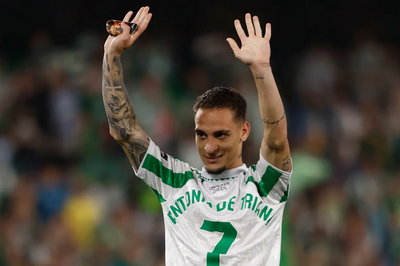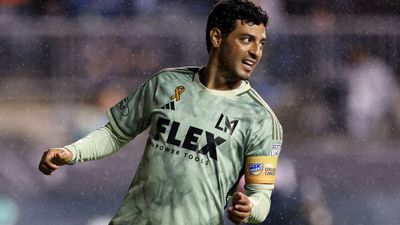Quick Betimate
Popular Leagues
Other Leagues
Oliver Glasner: Revolutionizing Football Management and Tactics

Football is a sport that constantly evolves, and with it, the role of the manager has also undergone significant changes. One individual who has made a name for himself in the footballing world is Oliver Glasner. With his unique approach to management and tactical innovations, Glasner has proven to be a revolutionary figure in the world of football.
In the ever-changing landscape of football, certain managers emerge as trailblazers, pushing the boundaries of traditional tactics and management techniques. Oliver Glasner is one such manager who has garnered attention for his innovative approach to the game. Through a combination of tactical acumen, player development strategies, and an analytical mindset, Glasner has established himself as a prominent figure in football management.
Playing Career and Transition to Coaching
Playing Career
Glasner began his career at SV Riedau before moving on to the second Austrian league team SV Ried in 1993. In 1995, Ried was promoted to the Austrian Bundesliga. During the 1997/98 season, he helped the team win the Austrian Cup. When Ried was relegated to the second level in 2003, Glasner joined First League club LASK for the next season before returning to Ried a year later.
Ried returned to the Bundesliga in 2005, and Glasner won the Austrian Cup for the second time in the 2010-11 season. On July 31, 2011, he received a cut above the eye and a minor concussion during a header battle in a league match between Ried and Rapid Wien. Nonetheless, he followed his squad during the Europa League third qualifying round second leg against Brøndby IF.

Glasner began his career at SV Riedau
On August 4, 2011, a cerebral hemorrhage occurred during the final head ball training session. He had surgery on the same day. Glasner recovered well after the procedure, but on the doctors' suggestion, he stopped his career on August 23, 2011. During his 16-year career, he made over 500 league appearances.
Transition to Coaching: Oliver Glasner's Path to Leadership
After a successful playing career, Oliver Glasner made the decision to transition from the role of a player to that of a coach. This transition allowed him to channel his deep understanding of the game and his leadership qualities into guiding and nurturing the talents of young players.

Oliver Glasner made the decision to transition from the role of a player to that of a coach
Glasner's coaching philosophy is centered around a proactive and attacking style of play, emphasizing teamwork, discipline, and strategic thinking. His approach is rooted in the belief that every player has untapped potential, and it is the coach's responsibility to unlock and harness that potential. Through his meticulous planning, attention to detail, and strong communication skills, Glasner creates an environment that fosters growth and development for both individual players and the team as a whole.
Early Coaching Experiences and Development
Oliver Glasner's transition to coaching began with roles in various youth academies and lower-level clubs. These early experiences allowed him to gain valuable practical knowledge, develop his coaching methodologies, and refine his understanding of the game. As he continued to build his coaching resume, Glasner's reputation as a knowledgeable and innovative coach started to grow.
First Head Coaching Job and Success
Glasner's breakthrough as a head coach came when he was appointed the manager of LASK Linz, a prominent Austrian club. Under his guidance, LASK Linz experienced a remarkable rise, achieving unprecedented success both domestically and in European competitions. Glasner's ability to instill a winning mentality, his tactical acumen, and his emphasis on player development were key factors in the team's accomplishments.
Overcoming Challenges and Adapting to New Environments
Throughout his coaching career, Oliver Glasner has faced numerous challenges, including managing high-pressure situations, handling the expectations of fans and club owners, and adapting to new environments. However, his ability to remain composed, adaptable, and solution-oriented has enabled him to overcome these obstacles and continue achieving success.
Coaching Journey and Major Milestones
Early Coaching Stints: Gaining Experience
In the early stages of his coaching career, Glasner sought opportunities to gain valuable experience and sharpen his skills. He started by working with youth teams and lower-division clubs, honing his understanding of the game and learning the intricacies of player development. These initial stints provided the foundation for his coaching philosophy and set the stage for future successes.
Breakthrough at Austria Wien: Tactical Innovations
Glasner's breakthrough came during his tenure at Austria Wien, where he showcased his tactical acumen and innovative approach to the game. He implemented a dynamic style of play, emphasizing quick transitions and fluid movement off the ball. His ability to adapt formations and tactics based on the opponent's strengths and weaknesses earned him recognition within the footballing community.
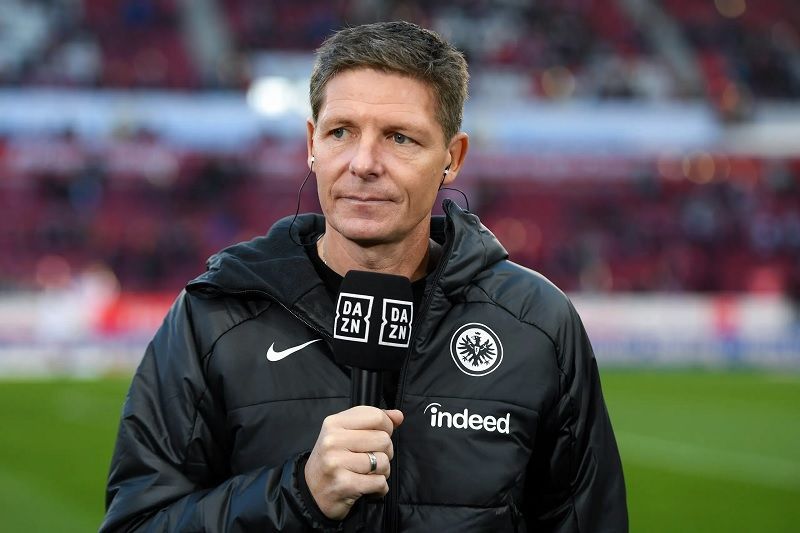
Glasner's breakthrough came during his tenure at Austria Wien
Under Glasner's guidance, Austria Wien enjoyed a period of sustained success, competing at the top of the Austrian Bundesliga. His team's attacking prowess and solid defensive structure made them a formidable force, captivating both fans and pundits alike. Glasner's tactical innovations laid the groundwork for future accomplishments and caught the attention of larger clubs.
Successful Spells at LASK Linz: Europa League Success
Following his successful stint at Austria Wien, Glasner took charge of LASK Linz and elevated the club to new heights. He led them to a historic qualification for the UEFA Europa League, a remarkable achievement for a team not traditionally considered a European powerhouse. Glasner's meticulous planning, effective player management, and ability to extract the best out of his squad propelled LASK Linz to surpass expectations.
In the Europa League, Glasner's team displayed resilience and tactical discipline, causing upsets against more renowned opponents. LASK Linz's memorable run in the competition showcased Glasner's ability to thrive on the big stage and solidified his reputation as a coach capable of achieving remarkable feats.
Arrival at VfL Wolfsburg: Revitalizing the Club
Oliver Glasner's coaching journey reached new heights when he was appointed as the head coach of VfL Wolfsburg. Tasked with revitalizing the club's fortunes, Glasner brought a fresh perspective and implemented his tactical philosophy to transform the team. His emphasis on possession-based football, high pressing, and quick transitions revolutionized the way Wolfsburg played.
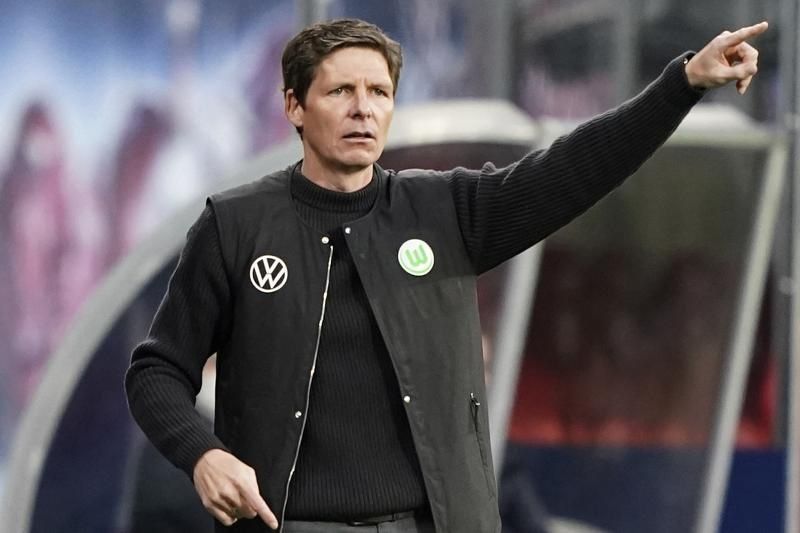
Oliver Glasner's coaching journey reached new heights when he was appointed as the head coach of VfL Wolfsburg
Under Glasner's guidance, Wolfsburg experienced a resurgence, competing at the top of the highly competitive Bundesliga. His team's attacking flair, defensive solidity, and ability to break down resilient opponents have made them a force to be reckoned with. Glasner's impact at Wolfsburg has garnered widespread praise and admiration, with the club's fans embracing his style of play and optimistic vision for the future.
Glasner's Tactical Philosophy
Glasner's tactical philosophy is a dynamic and innovative approach to football that combines pressing and intense counter-pressing, emphasizes team structure and discipline, and employs attacking strategies and fluid formations. Oliver Glasner, the renowned football coach, has gained recognition for his unique style of play, which has yielded remarkable results for the teams he has managed.
Pressing and Intense Counter-Pressing
Glasner places a significant emphasis on pressing, which involves applying relentless pressure on the opponent to regain possession quickly. This high-intensity defensive strategy disrupts the opponent's build-up play, forcing them into making mistakes and turnovers. By pressing as a cohesive unit, Glasner's teams effectively close down passing lanes, suffocate the opposition's attacking options, and create scoring opportunities.
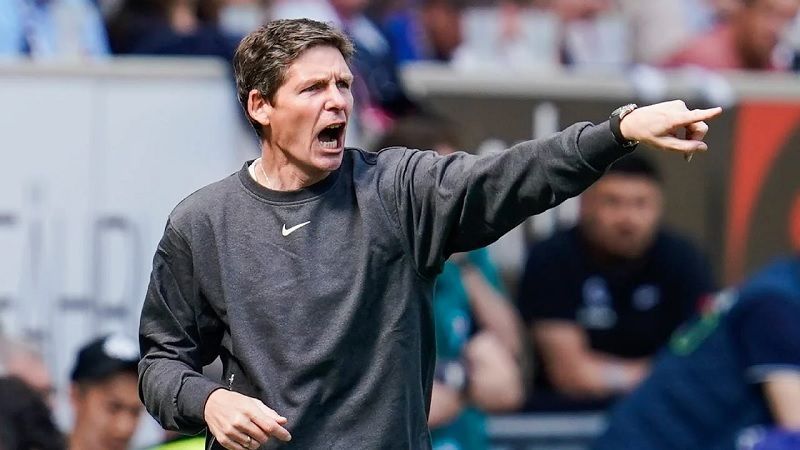
Glasner places a significant emphasis on pressing
The execution of intense counter-pressing is another hallmark of Glasner's philosophy. As soon as possession is lost, his team immediately shifts into a counter-pressing mode, aiming to win back the ball within seconds. This rapid transition from attack to defense catches opponents off guard and prevents them from organizing a structured counter-attack. The relentless pressure forces the opposition into making hurried decisions, leading to turnovers and scoring opportunities for Glasner's team.
The impact of Glasner's pressing and intense counter-pressing is twofold. Firstly, it disrupts the opponent's rhythm, forcing them into making errors and reducing their time on the ball. Secondly, it creates a sense of urgency within Glasner's team, fostering a proactive mindset and a constant hunger to regain possession.
Emphasis on Team Structure and Discipline
Glasner's tactical philosophy places great importance on team structure and discipline. A well-organized team is the foundation for effective pressing and counter-pressing. Glasner meticulously trains his players to maintain their positions, press together as a unit, and cover spaces intelligently. This structured approach ensures that each player understands their role and responsibilities, minimizing gaps in defense and maximizing attacking opportunities.
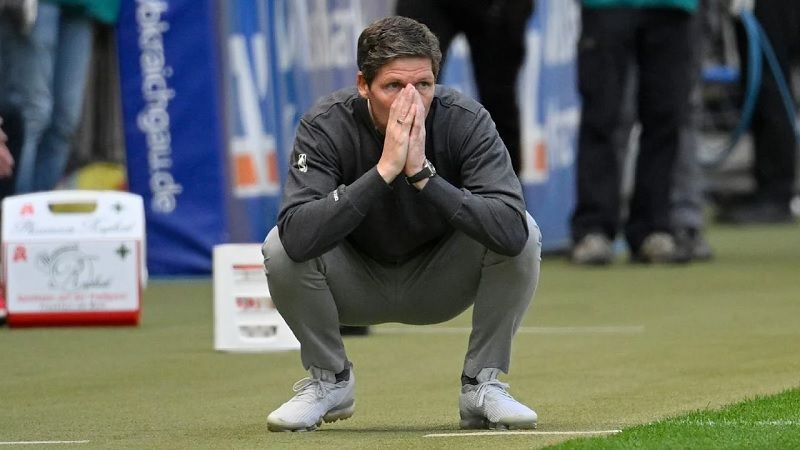
Glasner's tactical philosophy places great importance on team structure and discipline
Discipline is another key aspect of Glasner's philosophy. Players are required to adhere to a strict set of guidelines both on and off the field. This discipline translates into a cohesive and harmonious team dynamic, where everyone works towards a common goal. Glasner's teams are known for their work ethic, discipline, and unwavering commitment to executing tactical instructions.
Attacking Strategies and Fluid Formations
Glasner's tactical philosophy is not solely focused on defense; it also emphasizes dynamic attacking strategies. His teams adopt flexible formations that can adapt to different situations and exploit the opponent's weaknesses. This flexibility allows Glasner to adjust his team's shape during matches, providing a tactical advantage and keeping the opposition guessing.
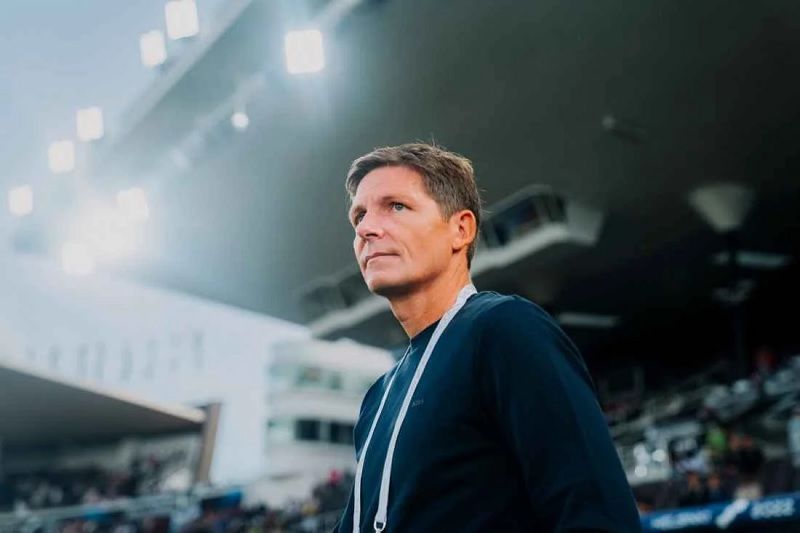
Glasner's tactical philosophy is not solely focused on defense
The attacking play under Glasner is characterized by dynamic movement, intelligent positioning, and quick passing. His teams exhibit fluidity in their attacking transitions, seamlessly shifting from defense to attack with precision and speed. This fluidity allows for intricate passing combinations, creating gaps in the opponent's defense and opening up goal-scoring opportunities.
Glasner encourages his players to embrace creativity and take risks in the final third. The attacking style focuses on direct play, vertical runs, and incisive through balls to penetrate the opposition's defense. This bold and proactive approach puts the opponent under constant pressure and maximizes the chances of scoring.

Glasner encourages his players to embrace creativity and take risks in the final third
In addition to emphasizing attacking strategies, Glasner's tactical philosophy incorporates fluid formations. Rather than being rigidly tied to a specific formation, his teams exhibit positional freedom and adaptability. This allows players to interchange positions seamlessly, creating confusion and overloads in the opponent's defensive structure.
The fluid formations employed by Glasner enable his players to exploit spaces and make unpredictable runs. This unpredictability poses a significant challenge for opposing defenders, as they struggle to mark players who constantly change positions. The fluidity in formations ensures that Glasner's teams maintain offensive prowess while remaining defensively organized.
Impact on VfL Wolfsburg
Oliver Glasner's appointment as the head coach of VfL Wolfsburg brought about a significant transformation in the club's playing style and overall performance. Known for his innovative tactics and focus on attacking football, Glasner's influence has been profound.
Transforming Wolfsburg's Playing Style
One of the key aspects of Glasner's impact on VfL Wolfsburg has been his ability to transform the team's playing style. Upon his arrival, Glasner introduced a more attacking and possession-based approach, aiming to entertain the fans while achieving positive results. He implemented a high-pressing system, emphasizing quick transitions and fluid movement on the pitch.
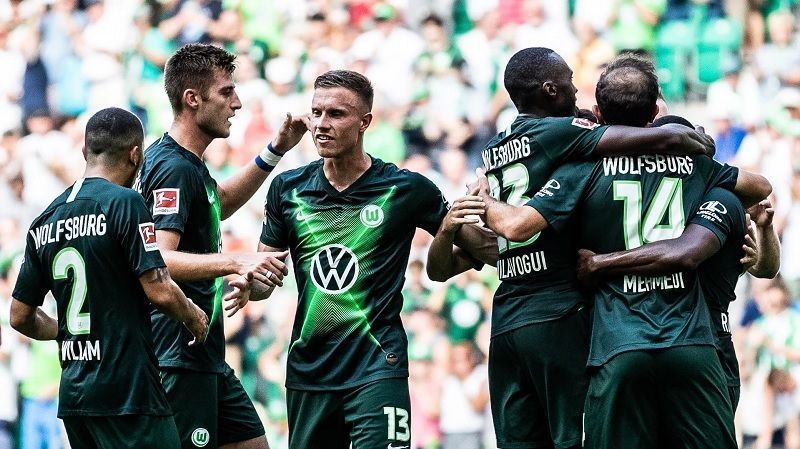
Glasner's impact on VfL Wolfsburg has been his ability to transform the team's playing style
Under Glasner's guidance, Wolfsburg adopted a more proactive style of play, taking the initiative in matches and imposing their game on the opponents. The team started to focus on building from the back, with the defenders playing a crucial role in initiating attacks. This change in approach not only resulted in more goals being scored but also led to a more entertaining and exciting brand of football.
To support this new playing style, Glasner made adjustments to the team's formation. He favored a 4-2-3-1 setup, providing stability in defense while allowing for fluidity and creativity in the attacking third. This tactical shift enabled the players to express themselves on the field, leading to a more dynamic and unpredictable team.
Squad Development and Player Integration
In addition to transforming the playing style, Oliver Glasner has played a vital role in the development of Wolfsburg's squad. He has shown a keen eye for young talent and has been instrumental in integrating promising players into the first team. Glasner's emphasis on youth development has led to a rejuvenated squad with a blend of experienced players and talented youngsters.

Oliver Glasner has played a vital role in the development of Wolfsburg's squad
Glasner's coaching philosophy revolves around creating a cohesive unit where every player understands their role and contributes to the team's success. He has successfully created a positive team environment, fostering a sense of unity and purpose among the players. This has been crucial in building a strong foundation for long-term success.
Domestic Success
Under Oliver Glasner's guidance, VfL Wolfsburg has experienced significant success in domestic competitions. The team has consistently improved their performance in the Bundesliga, challenging the traditional powerhouses and securing European qualification spots. Glasner's tactical acumen and ability to motivate the players have been key factors in their domestic success.
Wolfsburg's performances under Glasner have been characterized by their resilience, attacking prowess, and disciplined defending. The team has recorded impressive victories against top-tier opponents and has shown the ability to bounce back from setbacks. With Glasner at the helm, Wolfsburg has become a formidable force in German football.
European Success
In addition to their domestic achievements, Oliver Glasner has guided VfL Wolfsburg to notable success in European competitions. The team has showcased their quality on the continental stage, making significant progress in tournaments such as the UEFA Europa League. Glasner's tactical flexibility and ability to adapt to different opponents have been key factors in their European endeavors.
Wolfsburg's European campaigns under Glasner have been filled with memorable moments and exciting matches. The team has gone toe-to-toe with some of the best clubs in Europe, showcasing their talent and ambition. With Glasner's guidance, Wolfsburg has become a team to be reckoned with in European competition.
Impact on Individual Players
Oliver Glasner's impact extends beyond the team's collective success. He has been instrumental in the development and improvement of individual players at VfL Wolfsburg. Under Glasner's tutelage, several players have flourished, showcasing their talent and reaching new heights in their careers.
Glasner's coaching style emphasizes player empowerment and provides a platform for players to express themselves on the field. This has led to notable improvements in the performances of players in various positions. Whether it be the attacking prowess of forwards, the creativity of midfielders, or the defensive solidity of the backline, Glasner's coaching has had a positive influence on individual players.
Oliver Glasner's Success at Frankfurt
Oliver Glasner had a successful tenure as the head coach of Eintracht Frankfurt. After joining the club in the summer of 2021, Glasner achieved notable accomplishments during his time with the team. One of the major highlights of Glasner's coaching career came in the UEFA Europa League. In 2022, under Glasner's guidance, Eintracht Frankfurt emerged as champions of the tournament. This victory marked a significant milestone in Glasner's coaching journey and demonstrated his ability to lead a team to success on the European stage.
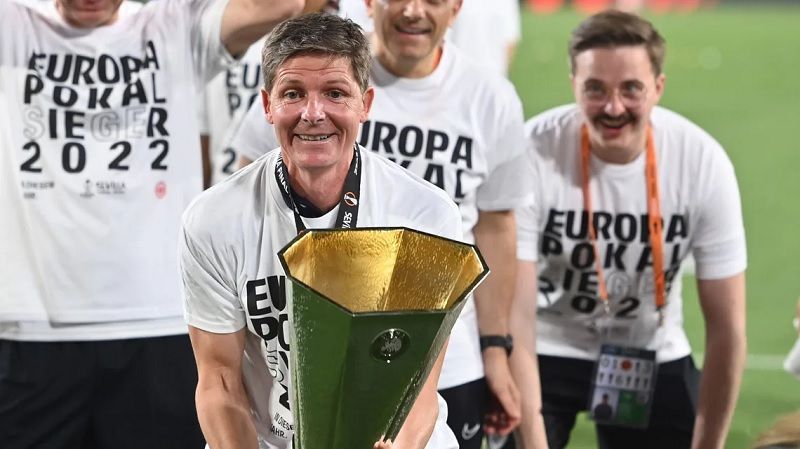
Oliver Glasner had a successful tenure as the head coach of Eintracht Frankfurt
Additionally, Eintracht Frankfurt made an impressive run in the Champions League during Glasner's tenure. The team reached the round of 16 in the competition after delivering strong performances in the group stage.
Glasner's success extended beyond cup competitions. During his time at Eintracht Frankfurt, the team secured a place in the UEFA Europa Conference League qualifying rounds by finishing seventh in the Bundesliga. This achievement highlighted the team's consistency and solid performance throughout the domestic league.
The club's management, including board member for sport Markus Krösche, acknowledged Glasner's significant contributions to Eintracht Frankfurt's success. They expressed gratitude for his efforts and credited him, along with his coaching staff, for achieving great things during his tenure.
Glasner's Man-management Skills
Glasner's Man-management Skills
- Understanding the Role of Man-management
Effective man-management involves recognizing that players are not merely assets but human beings with emotions, aspirations, and individual needs. Glasner grasps this crucial aspect and acknowledges the significance of forming genuine connections with his players. By doing so, he creates an environment where individuals feel valued and motivated to give their best.
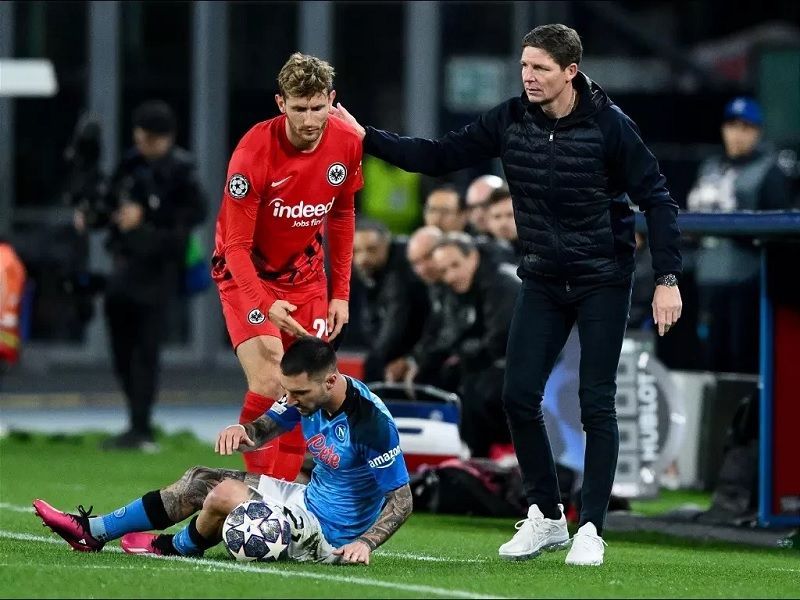
Glasner grasps this crucial aspect connections with his players
- Communication and Trust
Clear and open communication lays the foundation for successful man-management. Glasner emphasizes the importance of honest dialogue, actively listening to players, and fostering an atmosphere of trust. This approach enables players to express their concerns, ideas, and ambitions, leading to stronger bonds and better understanding within the team.
- Individualized Approach
Glasner recognizes that each player is unique and requires personalized attention. He tailors his coaching style to suit the needs and characteristics of individual players, enhancing their development and performance. This individualized approach demonstrates Glasner's commitment to nurturing the potential of each team member.
Building Strong Relationships with Players
- Creating a Supportive Environment
Glasner strives to create a supportive environment where players feel comfortable and confident. By fostering a sense of belonging and camaraderie, he encourages players to form strong relationships with one another. This cohesion translates into improved teamwork and cohesion on the field.

Glasner strives to create a supportive environment where players feel comfortable and confident
- Active Listening and Empathy
Active listening and empathy are integral to Glasner's approach. He actively seeks to understand his players' perspectives, concerns, and aspirations, demonstrating empathy toward their experiences. This empathetic connection fosters trust and strengthens the coach-player relationship.
- Resolving Conflicts
Conflict is inevitable in any team setting, but Glasner excels in handling and resolving such situations. His diplomatic approach encourages open dialogue and fair resolution, preventing lingering tensions from affecting team dynamics. By addressing conflicts promptly and effectively, Glasner maintains a harmonious atmosphere within the team.
Motivational Techniques and Psychological Approach
- Understanding Player Motivation
Glasner places great importance on understanding what motivates each player individually. By recognizing their unique driving factors, he tailors his motivational techniques to suit their needs. This approach inspires players to perform at their best and fosters a sense of purpose within the team.
- Setting Clear Goals
Glasner believes in setting clear and attainable goals for his players. By providing a clear direction and purpose, he instills a sense of focus and determination. Clear goals also enable players to measure their progress and celebrate achievements along the way.
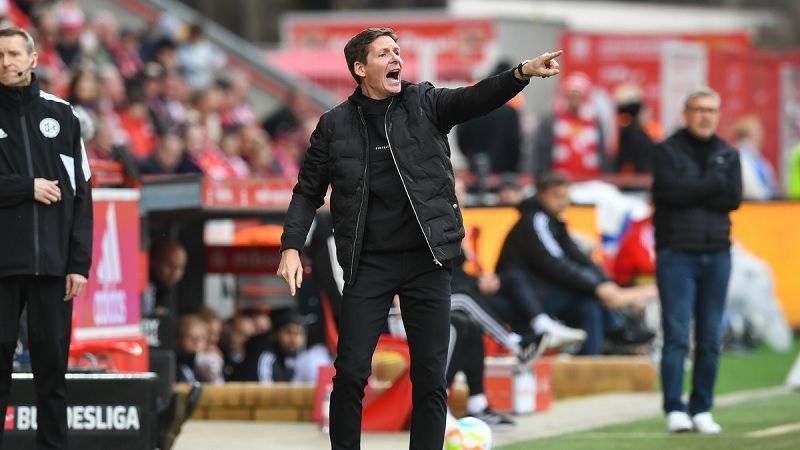
Glasner believes in setting clear and attainable goals for his players
- Creating a Positive Feedback Loop
Constructive feedback is a cornerstone of Glasner's coaching style. He offers praise for accomplishments and provides constructive criticism to facilitate improvement. This feedback loop nurtures player growth and fosters an environment of continuous learning.
Fostering a Positive Team Culture
- Promoting Collaboration and Unity
Glasner emphasizes the importance of collaboration and unity within the team. He encourages players to work together, leveraging each other's strengths and supporting one another. This collaborative culture contributes to a positive team environment and enhances overall performance.
- Encouraging Personal Growth
Glasner recognizes that personal growth is vital for long-term success. He supports his players' development both on and off the field, encouraging them to pursue opportunities for growth and improvement. This focus on personal growth instills a sense of ambition and self-motivation within the team.
- Celebrating Successes
Acknowledging and celebrating successes is a key aspect of Glasner's team culture. By highlighting achievements, he reinforces positive behavior and fosters a winning mentality. This celebration of success further motivates players and strengthens team spirit.
Oliver Glasner's Tactical Innovations
Football is a constantly evolving sport, with managers and coaches striving to find new and innovative ways to gain a competitive edge. One such tactician who has been making waves in recent years is Oliver Glasner. With his forward-thinking approach and tactical adaptability, Glasner has proven to be a game-changer for his team. In this article, we will delve into Glasner's tactical innovations, focusing on flexible formation systems, his tactical adaptability within matches, and his utilization of advanced statistical analysis.
Understanding Flexible Formation Systems
Flexible formation systems have become increasingly popular in modern football, allowing teams to adapt their tactics based on the specific match situation. Instead of rigidly sticking to a single formation, managers like Glasner have embraced the concept of fluid formations. This approach provides flexibility in both attack and defense, enabling teams to exploit weaknesses in the opponent's setup while maintaining defensive solidity.
The benefits of flexible formation systems are manifold. They allow teams to quickly switch between offensive and defensive setups, depending on the game's flow. By altering the positioning and roles of players, managers can create numerical superiority in certain areas of the pitch, leading to increased chances of success. However, implementing such systems also poses challenges, as players need to be tactically aware and adaptable to fulfill different roles within the formation.
Oliver Glasner's Tactical Adaptability
One of Glasner's key strengths as a manager is his tactical adaptability within matches. He has shown a willingness to make bold decisions and adjustments during games to maximize his team's performance. Glasner's astute use of substitutions and in-game tactical tweaks often catches opponents off guard, giving his team a significant advantage.
Whether it's a change in formation, personnel, or game plan, Glasner is not afraid to take calculated risks. His ability to identify weaknesses in the opponent's setup and make targeted changes accordingly has been instrumental in his team's success. This tactical adaptability keeps the opposition guessing and allows Glasner's team to maintain a competitive edge throughout the match.
Utilizing Advanced Statistical Analysis
In the modern era of football, data-driven decision-making has become increasingly prevalent. Oliver Glasner is at the forefront of this trend, utilizing advanced statistical analysis to inform his tactical approach. By leveraging sophisticated metrics and analytics, Glasner gains valuable insights into player performance, team dynamics, and opponents' strengths and weaknesses.
Advanced statistical analysis allows Glasner to identify patterns and trends that may not be immediately apparent through traditional observation alone. This data-driven approach enables him to make informed decisions regarding team selection, tactical setups, and in-game adjustments. By combining his footballing intuition with empirical evidence, Glasner can optimize his team's performance and exploit the opponent's vulnerabilities.
Case Studies: Examples of Glasner's Innovations
To truly understand the impact of Glasner's tactical innovations, let's examine a few case studies. In a recent match against a formidable opponent, Glasner surprised everyone by employing a flexible formation system that neutralized the opponent's attacking threat while providing his team with a potent counter-attacking strategy. The tactical switch caught the opponent off guard, leading to a convincing victory for Glasner's team.
In another instance, Glasner's use of statistical analysis identified a specific weakness in the opposition's defensive organization. Leveraging this insight, he made strategic substitutions to exploit the vulnerability, resulting in crucial goals and ultimately securing a vital win. These examples illustrate Glasner's ability to apply innovative tactics based on careful analysis and adapt his game plan to exploit the opposition's weaknesses.
Benefits of Glasner's Tactical Innovations
Glasner's tactical innovations offer several advantages for his team. By utilizing flexible formation systems, he provides his players with the freedom to express themselves creatively while maintaining a solid defensive structure. This balance allows for dynamic attacking play without compromising defensive stability. Additionally, Glasner's tactical adaptability keeps his team ahead of the curve, making them difficult to predict and counter.
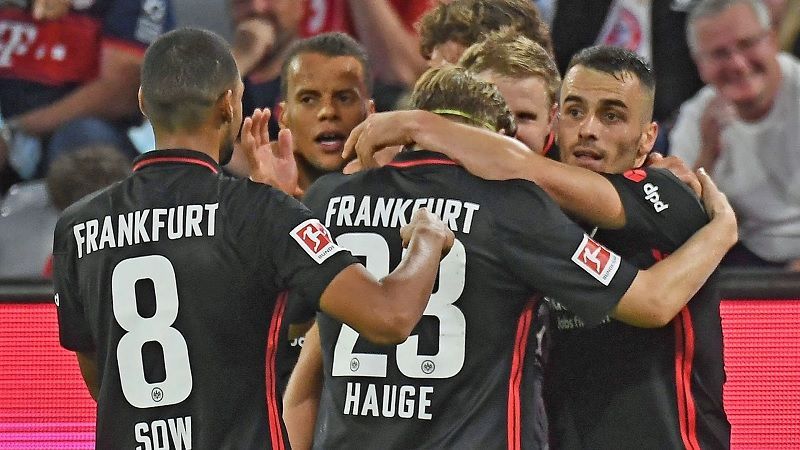
Glasner's tactical innovations offer several advantages for his team
Moreover, Glasner's use of advanced statistical analysis enables him to make data-backed decisions that maximize his team's potential. By understanding the intricacies of player performance and team dynamics, he can fine-tune his tactics to exploit opponents' weaknesses effectively. This comprehensive approach gives Glasner's team a competitive edge and increases their chances of success.
Challenges and Limitations
While Glasner's tactical innovations have proven effective, they are not without challenges and limitations. Implementing flexible formation systems requires a high level of tactical understanding and player adaptability. It can take time for players to grasp their roles within different setups, leading to potential confusion and defensive vulnerabilities.
Additionally, relying heavily on statistical analysis comes with its own set of limitations. Football is a dynamic sport with numerous variables that cannot always be captured by numbers alone. Emotional factors, individual player brilliance, and intangible aspects of the game can sometimes overshadow statistical trends. Glasner must strike a balance between data-driven decision-making and relying on the instincts and experience of his players.
Oliver Glasner has undoubtedly left an indelible mark on the world of football. Through his unique tactical approach, player development strategies, and analytical mindset, he has redefined the role of a manager. Glasner's success stories at Red Bull Salzburg and VfL Wolfsburg, as well as his influence on other managers, highlight his immense impact on the game. As football continues to evolve, Oliver Glasner will be remembered as a true pioneer in football management and tactics.
Managerial statistics
FAQs about Oliver Glasner
- Oliver Glasner began his coaching career in the lower divisions of Austrian football after retiring as a player. He steadily developed his managerial skills and caught the attention of top-tier clubs through his dedication and passion for the game.
- Glasner achieved significant success with Red Bull Salzburg, winning domestic titles and making a mark in European competitions. He also guided VfL Wolfsburg to compete at the highest level in the Bundesliga.
- Glasner places a strong emphasis on player development, particularly nurturing young talent. He focuses on creating a cohesive team dynamic and providing opportunities for young players to grow and excel under his guidance.
- Glasner is known for his flexibility in formations and positional changes. His tactical approach varies based on the strengths and weaknesses of his team and the opposition, allowing for a fluid style of play.
- Glasner's innovative tactics and management techniques have inspired other managers to explore alternative approaches and challenge traditional tactics. His success has encouraged a more open-minded and adaptive mindset in football management.
Related Content
